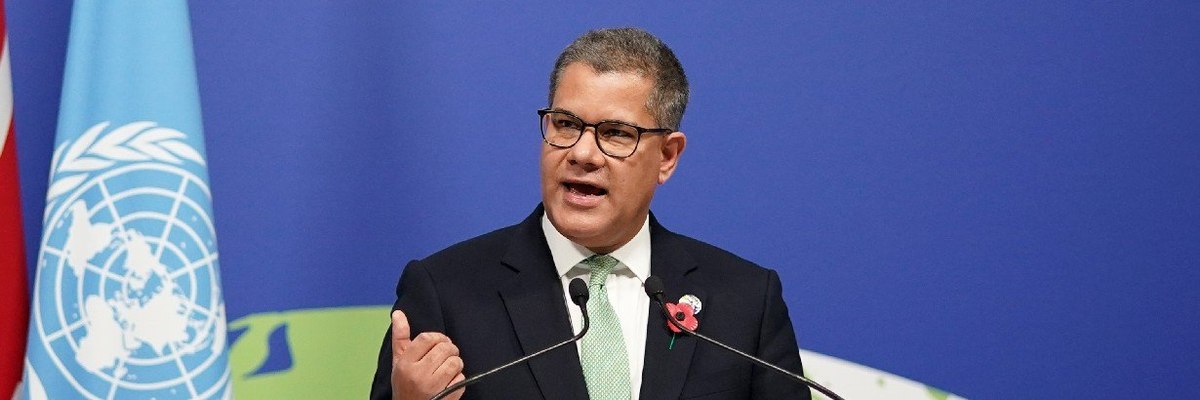The UK has just hosted the 26th instalment of the annual COP global climate summit, with politicians celebrating the progress made and scientists expressing concern that not enough is being done. But what did the public think? The latest YouGov polling, conducted the day after the conference closed, measured the public’s reaction.
At the close of the talks, 60% of Brits had heard a “great deal” or “fair amount” about COP26. This represents no movement in awareness from before the conference (58%).
Climate change is often seen as a younger persons’ issue, with younger Britons more likely to see the environment as a top issue than other generations. However older Britons were much more likely to have paid a great deal or fair amount of attention to COP26 proceedings, at 64% of those aged 65 and above compared to 35% of 18-24 year olds.
While the media hype surrounding the conference seems to have contributed to an increase in concern about the environment – the number of Britons listing it as one of the top issues facing the country rose from 30% in mid-October to 39% on the eve of the conference – consternation plateaued at this point, rising no further over the course of COP26 itself (39% on 15-16th November, shortly after the conference ended). The same is true across other environmental concern measures we track.
Prior to COP26, a third of Brits (33%) felt that the conference was an opportunity to bring together key players and put in place practical plans to effectively tackle climate change. Asked whether it actually achieved this, just 22% agree. Half (49%) feel that the conference did little in terms of finding practical solutions, and rather just brought attention to the issue of climate change.
There has been a small increase in the proportion of Brits that think COP26 will result in significant action to tackle climate change, but this is still heavily outweighed by the proportion that think this is unlikely. Comparing pre- and post-COP26 responses, there is a 9-point swing towards significant action being likely (from 16% to 25%), but six in ten (59%) still think it is unlikely that this will happen.
Britons support the COP26 agreements, but don’t trust world leaders to keep their promises
This may be explained by a distinct lack of faith in world leaders to keep the promises they made in Glasgow – three-quarters of Brits (75%) say they do not trust world leaders in this regard. This rises to 80% amongst adults who listed the environment as one of the most important issues facing the country in the next five years.
There could be significant disappointment should these suspicions turn out to be true, as there is strong support for all of the major measures announced at COP26. Across the six measures tested, at least seven in ten supported each one, with 84% supporting the proposal to end deforestation, 77% backing measures to cut methane emissions by 30%, and 77% also supporting major economies phasing down coal power.
While the public feel that these measures would have a significant impact on tackling climate change, they have little faith in them being put into action. For all measures apart from cars, a large majority feel that it is unlikely that the various targets will be met, even if all countries signed up. Seven in ten (70%) think it is unlikely that poorer economies will phase down coal power by 2040. Although there is slightly more optimism for wealthier nations to hit their coal target, over half (54%) still think this target is unlikely to be reached. Opinion is more divided on whether the emission levels of new cars and vans will be net zero globally by 2040, with 40% saying this target was likely to be met, and 45% saying it is not likely.
Is COP worth it?
During the COP26 conference, there was significant criticism of larger countries such as China and the US for not signing up to the biggest commitments to tackle climate change, with many arguing that the commitments had little value without the biggest polluters on board. However, the British public disagree, with 70% saying that it is still worthwhile for those who have signed to meet the commitments.
Three in five (59%) say that meetings of world leaders, such as COP26, have a very big or significant role to play in addressing the environment. This is lower than any other measures we asked about that could play a role – like trade deal terms, public pressure and updating business practices – but is still significant backing for future conferences.
The public feel particularly strongly that the development of cleaner and more environmentally friendly technologies is key to this issue, with 83% saying it has a role to play. Significantly, half (53%) saying this has a very big role to play, by far outranking the other measures tested.








